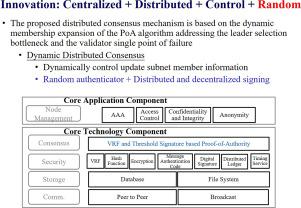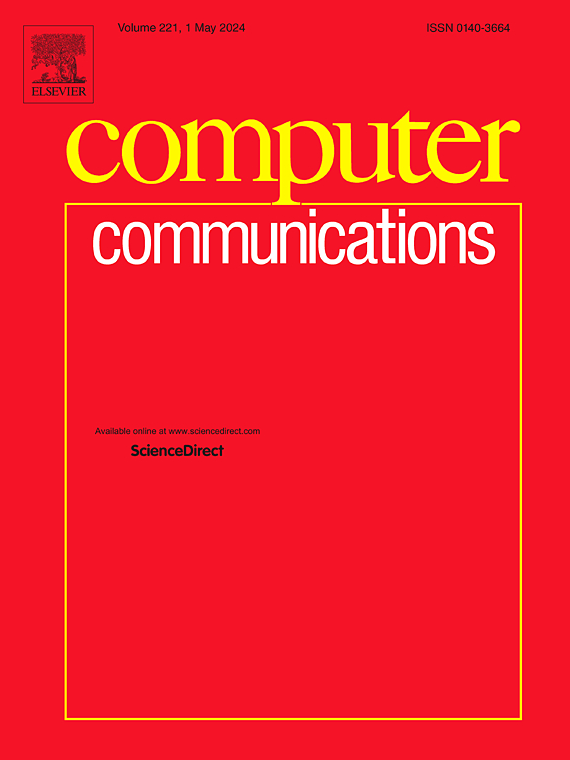An efficient Proof-of-Authority consensus scheme against cloning attacks
IF 4.5
3区 计算机科学
Q1 COMPUTER SCIENCE, INFORMATION SYSTEMS
引用次数: 0
Abstract
Proof-of-Authorization (PoA) consensus algorithms are widely used in permissioned blockchain networks due to their high throughput, security, and efficiency. However, PoA is susceptible to cloning attacks, where attackers copy the authenticator identity and key, thereby compromising the consensus integrity. This study proposes a novel randomized authenticator within the PoA framework to mitigate cloning attacks and solve the leader selection bottleneck. The main contributions include 1) Introducing unpredictability in leader selection through Verifiable Random Functions (VRFs) to prevent identity duplication.2) Dynamic group management using a hierarchical decentralized architecture of distributed ledgers that balances security and performance.3) Using threshold signatures to avoid a single point of failure among validators.4) Comprehensively analyzing attacks, security, randomness, and availability.5) Evaluating the effectiveness of a randomized authenticator by means of OMNET++ simulations to assess efficiency. By integrating randomness into leader selection and robust consensus design, the approach enables reliable and secure dynamic group management in decentralized networks.

对抗克隆攻击的高效权威证明共识方案
授权证明(PoA)共识算法因其高吞吐量、安全性和高效性而被广泛应用于许可区块链网络中。然而,PoA 容易受到克隆攻击,即攻击者复制验证器身份和密钥,从而破坏共识的完整性。本研究在 PoA 框架内提出了一种新型随机验证器,以缓解克隆攻击,解决领导者选择瓶颈。主要贡献包括:1)通过可验证随机函数(VRF)在领导者选择中引入不可预测性,以防止身份重复;2)使用分布式账本的分层分散架构进行动态组管理,以平衡安全性和性能;3)使用阈值签名以避免验证者之间的单点故障;4)全面分析攻击、安全性、随机性和可用性;5)通过 OMNET++ 模拟评估随机验证器的有效性,以评估效率。通过将随机性整合到领导者选择和稳健共识设计中,该方法实现了分散网络中可靠、安全的动态群组管理。
本文章由计算机程序翻译,如有差异,请以英文原文为准。
求助全文
约1分钟内获得全文
求助全文
来源期刊

Computer Communications
工程技术-电信学
CiteScore
14.10
自引率
5.00%
发文量
397
审稿时长
66 days
期刊介绍:
Computer and Communications networks are key infrastructures of the information society with high socio-economic value as they contribute to the correct operations of many critical services (from healthcare to finance and transportation). Internet is the core of today''s computer-communication infrastructures. This has transformed the Internet, from a robust network for data transfer between computers, to a global, content-rich, communication and information system where contents are increasingly generated by the users, and distributed according to human social relations. Next-generation network technologies, architectures and protocols are therefore required to overcome the limitations of the legacy Internet and add new capabilities and services. The future Internet should be ubiquitous, secure, resilient, and closer to human communication paradigms.
Computer Communications is a peer-reviewed international journal that publishes high-quality scientific articles (both theory and practice) and survey papers covering all aspects of future computer communication networks (on all layers, except the physical layer), with a special attention to the evolution of the Internet architecture, protocols, services, and applications.
 求助内容:
求助内容: 应助结果提醒方式:
应助结果提醒方式:


